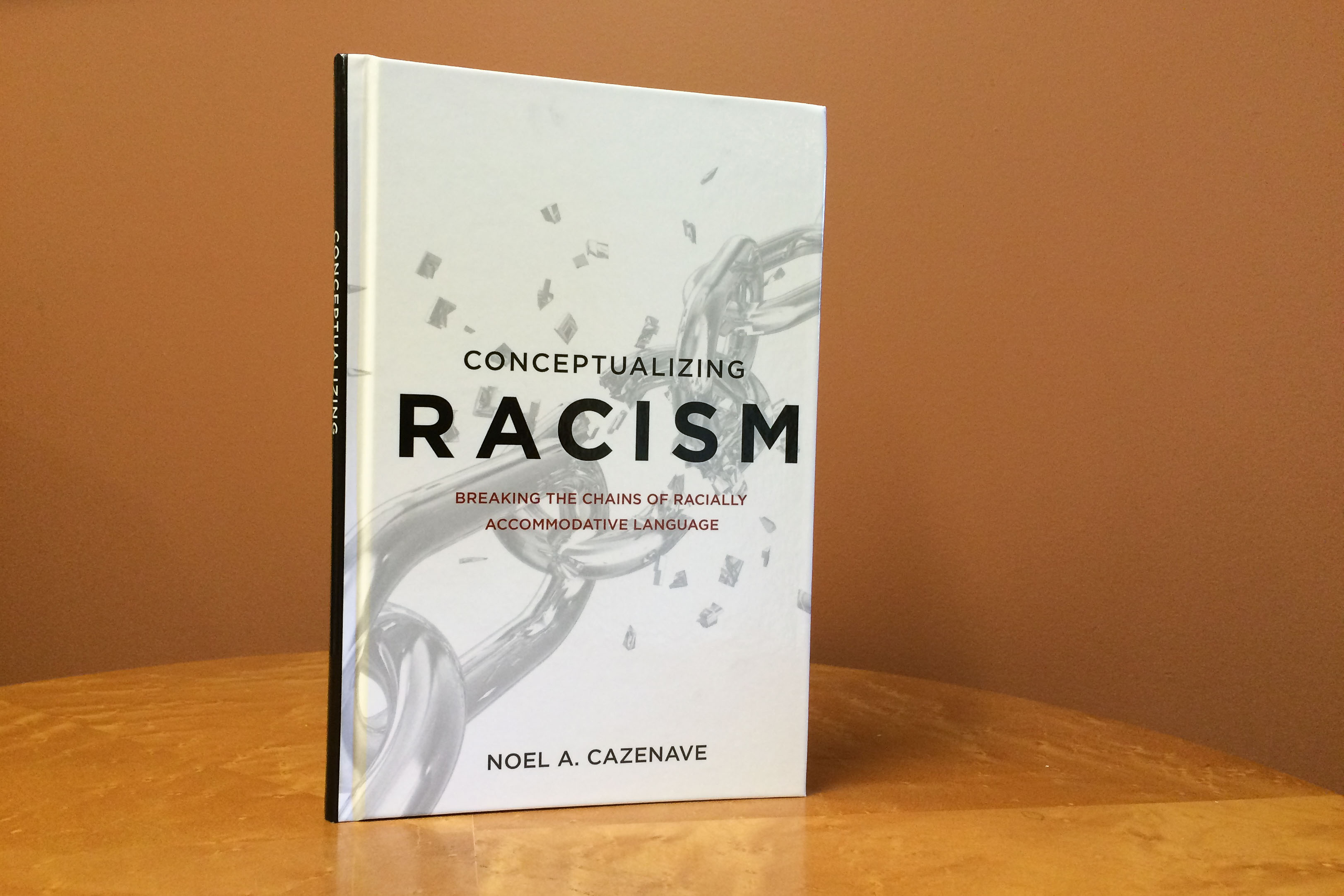When the National Advisory Commission on Civil Disorders (the Kerner Commission) issued its report on the causes of the 1967 race riots in the United States, its basic conclusion was jarring: “Our nation is moving toward two societies, one black, one white – separate and unequal.”
Despite the election of a two-term African-American president, nearly half a century later America continues to grapple with serious racial issues, including the formidable challenge of how to discuss systemic racism, a subject that is the focus of Noel A. Cazenave’s new book, Conceptualizing Racism: Breaking the Chains of Racially Accommodative Language (Rowman & Littlefield 2016).
Cazenave, a professor of sociology who is also on the Urban and Community Studies faculty in the College of Liberal Arts and Sciences, begins and ends his book with a simple declaration: “Words matter!”
“Because oppressive systems like racism are held together through language comprised of words – precise and carefully chosen words – it matters whether the words we choose are ‘race’ or ‘racism,’ ‘black’ or ‘African American,’ ‘minority’ or ‘racially oppressed,’” he says.
As an example of a rare moment when a large and robust conceptualization of racism was forced into the national discourse, Cazenave points to the direct and explicit language, like “white racism,” that shocked the nation when it was used in the Kerner Commission report.
“That was extraordinary language to come from a presidential commission,” he says, noting that what he describes as “linguistic racial accommodation” – the use of words that avoid racism-explicit language – has evolved over the years. “Such language expands and contracts with current race relations in the United States. The normal default option is, of course, racial accommodation; when most of us use the vague and undersized idiom of the racial status quo.”
One of the themes of Cazenave’s book is that today straightforward conversation about systemic racism is often not possible because of the claim that the nation is now a “colorblind society.”
“Much of today’s racism is done in very subtle ways that fit this colorblind ideology,” he says. “Even if no one is called the ‘N’ word, the racism is still very consequential. At the same time, we have a society that during racially normal times will not even allow an honest discussion about systemic racism. Such racism evasiveness serves to maintain the status quo. A recent example is the attempt to shout down the ‘Black Lives Matter’ movement through strident, white-backlash-driven pronouncements that ‘All Lives Matter.’”
In his book, Cazenave also points to highly publicized examples of when President Barack Obama did not use “direct and explicit language” on clear issues of systemic racism: in the 2008 presidential campaign, during the controversy over comments by his former minister, Pastor Jeremiah Wright, who suggested that racism is endemic to American society, and then a year later when Harvard professor Henry Louis Gates Jr. was arrested while trying to open a locked door at his home in Cambridge, Mass., which generated a national debate over racial profiling by police.
Cazenave says the nation’s growing racial tensions following the 2015 shooting of an African-American teenager by a European-American police officer in Ferguson, Mo., and Republican candidate Donald Trump’s comments about Mexicans and Muslims moved race relations to the front of the 2016 presidential campaign. “Both [Democratic candidates] Hillary Clinton and Bernie Sanders are now using explicit terminology like ‘racial justice’ and ‘systemic racism,’” he adds.
In Conceptualizing Racism, Cazenave hopes to offer important insights into how direct discussion about issues of racism can help “dismantle every linguistic plank, screw, and nail of systemic racism.”



